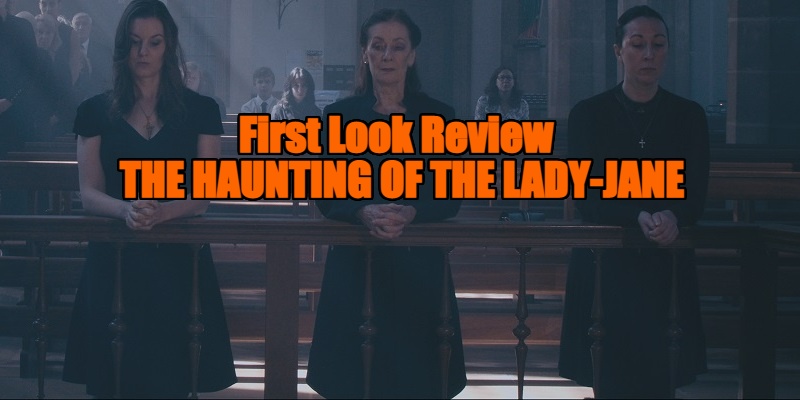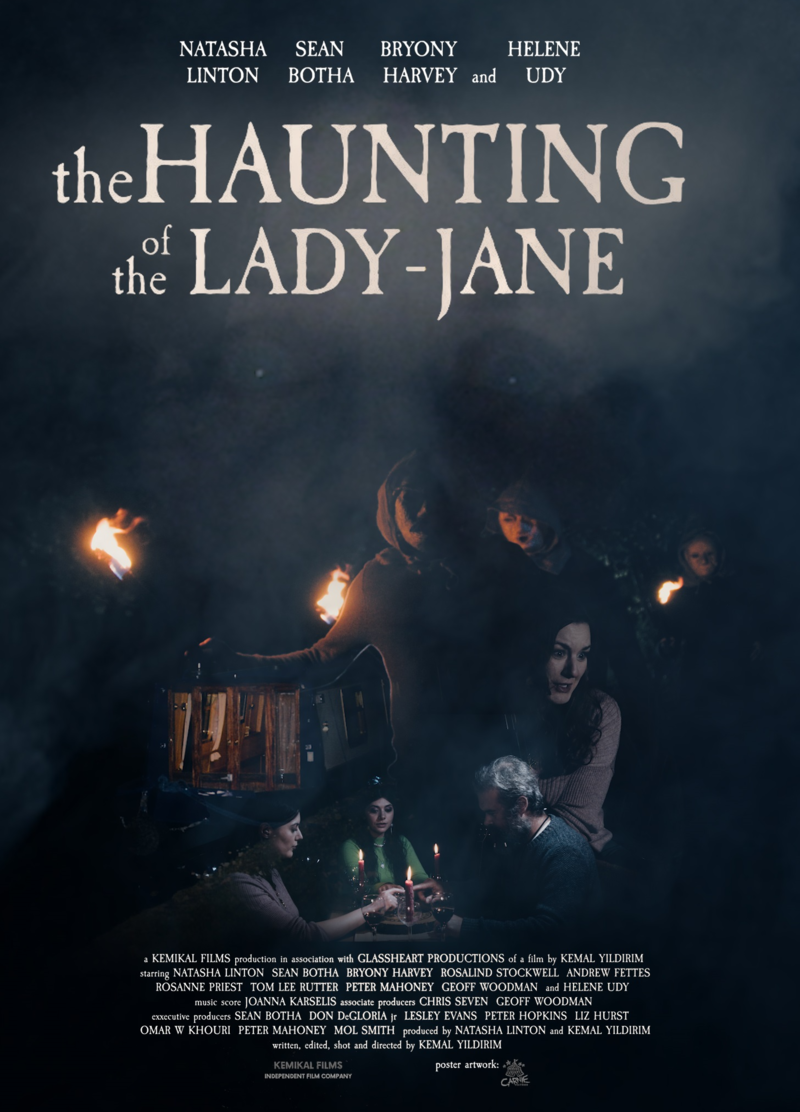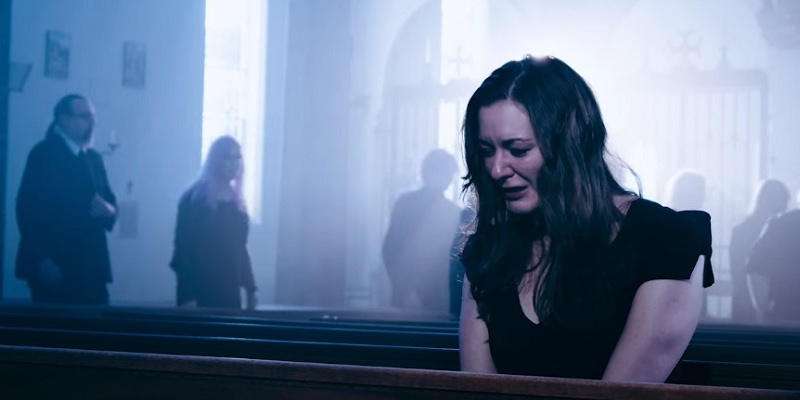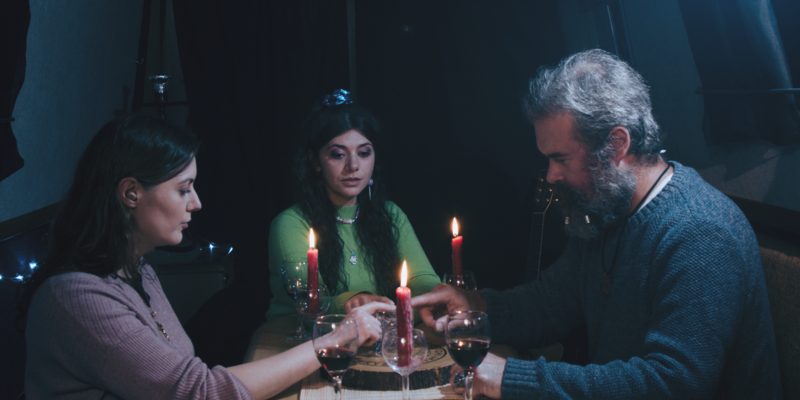
Two female travelling companions share a barge on a reputedly haunted
stretch of England's waterways with a religiously obsessed man.
Review by
Benjamin Poole
Directed by: Kemal Yildirim
Starring: Natasha Linton, Bryony Harvey, Sean Botha, Helene Udy

With their concrete imposition upon the fertile wetlands of the
countryside, and their eerie repurpose from vital industrial
distribution routes to today's niche middle class holiday loci, the
inland waterways of Britain are definitively hauntological. The hard
worn Victorian past of transporting raw materials of coal and lumber
around Britain re-exists today as recreation for modern boaters, with
their brightly coloured brass and decks, who roam the chocolate box
towns of England and Wales in search of real ale and the authentic rural
experience which the metropolis lacks. I've never fancied it myself, as,
aside from all the mud and bracken, manning a narrowboat seems far too
much like hard work for one so delicate! Aside from the constant
vigilance which being in control of a 72 foot long vessel upon a moving
body of water would entail, there is the arse ache of rusty locks to
deal with, of iron cranks and creaking gates. Canal boating entails a
close relationship with the elements, patience with the landscape and an
instinctive empathy towards the cold depths of the British water.

Kemal Yildirim's (writer/director/producer) creepy folk horror
The Haunting of the Lady-Jane duly uses the waterways as
setting and inspiration for its shiver-me-timbers plot.
Natasha Linton, the striking star of Yildirim's
Wastelands, plays Lily, a character whose trauma, as in the earlier film, is
located in specifically female (and sexual) experience. An upcoming
feminist author with a certain clout among the social media crowd, Lily
decides on a whim to accept an offer of free passage up the British
canal system with a fan, Zara (Bryony Harvey), whom she has met
through her blog. Following a dreamlike funeral, where The Last Supper
is invoked and Lily is blamed for the death of her father via vague
accusations of "breaking his heart" and the more direct invective "you
cunt" (!) from an embittered aunt, Lily is a Judas figure; outcast and
seemingly either searching for redemption or taking flight from the
past. However, within the tightly organised networks of the British
Waterway Systems, destinations are circumscribed, and notwithstanding
the journey's metaphorical inferences, the terminus is inevitable: a
Styxian dynamic.

In the film's more sober prelude, Lily is likened by her father to a
tree (trees and fields - a semantic association with the Twelfth
Apostle? Or am I just writing this on Good Friday?), specifically
linking her to pagan, feminine nature. Nonetheless, upon the shifting
currents of the canals, Catholic implications of guilt and punishment
abide courtesy of Willard (Sean Botha), the ship's manly captain
who is not only typically superstitious but a religious nut, too.
Willard has a past of his own to contend with, involving his departed
wife, who, flashbacks inform us, got increasingly fed up being stuck on
a cramped boat with an alcoholic would-be Theologian. And, as
exemplified by the weirdly lawless arena of water, the ambiguity of
countless drownings and disappearances with the tide, being adrift can
lead to desperate behaviours... The waters are further murked by the
presence of RÀN (Helene Udy), a vengeful water spirit who haunts
the damp shadows of the Shropshire conduits. Yikes! Just as Lily must
come to terms with the dark depths of the past, there is no escaping the
folk history of the countryside, either. The water under the bridge
surges up to soak our trio.
As they travel deeper into the night, and strange events mark the
journey, Willard advises that the further north one travels the more
haunted the "damn cold, dark and wet" byways become, before pointedly
equating "water, sex and death." Lily, with her religious background,
consolidates the refrain by chipping in a reference to the Fallen woman,
anchoring the film's ideology. The night-time discourse between
The Haunting of the Lady-Jane's three passengers is thoughtful and astute, with Zara (a viral
chasing millennial), Willard (a mercurial Ahab figure) and Lily (pagan
heroine/Biblical criminal) fulfilling recognisable archetypes.

Complimenting the dialogue, the film's atmospheric use of space (both
open and enclosed) and expressive lighting reinforces the themes of
repression and retribution in a manner that will please fans of
folkloric horror. Perhaps the ending, with its overtly literal
denouements and implausible costumes (crowdfunded, the film otherwise
makes the most of its microbudget via well-chosen locations and
convincing direction) trouble the waters somewhat, but ultimately,
The Haunting of the Lady-Jane charters a pleasingly gothic
navigation though the spooky shadows of a haunted Britain.

A release date has yet to be announced.

